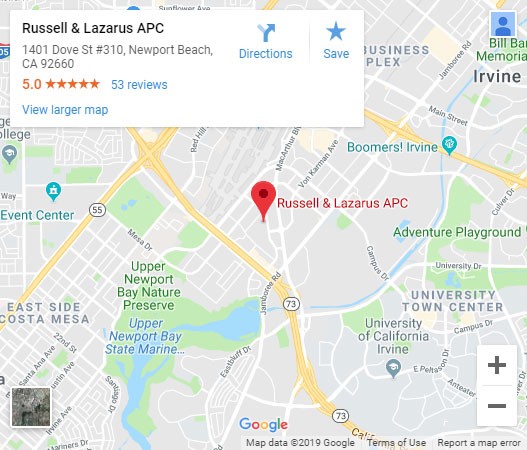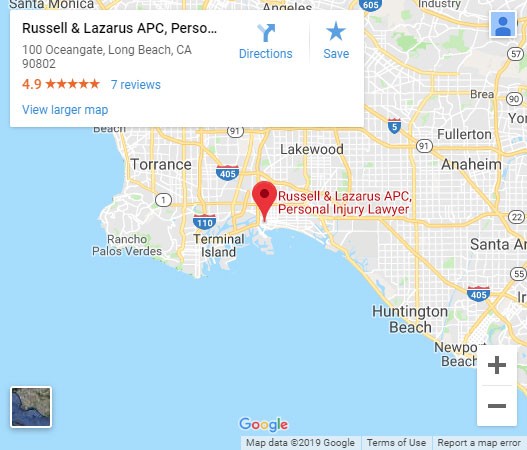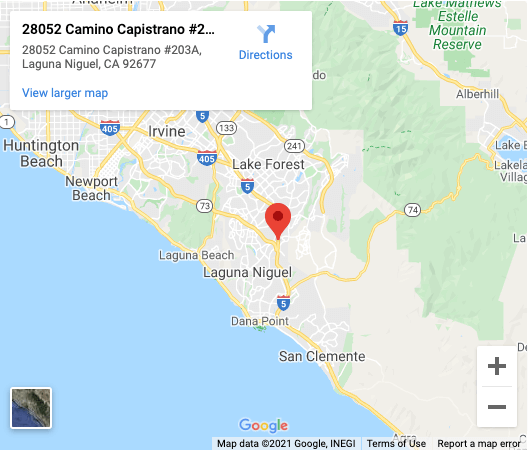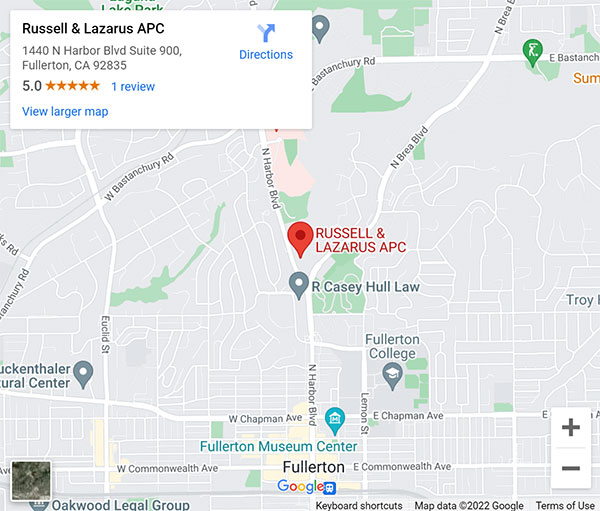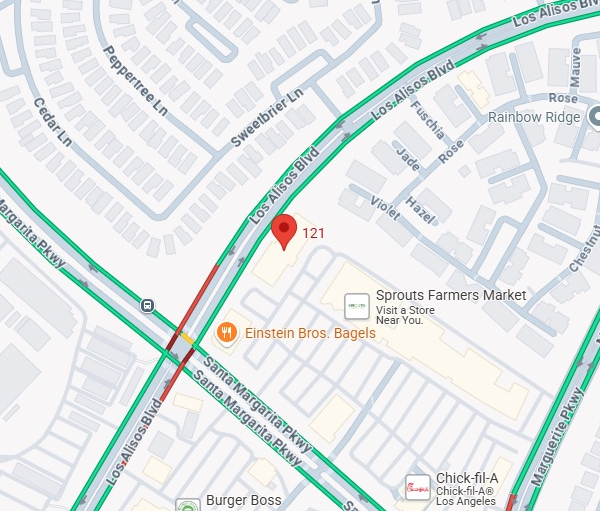Newport Beach Traumatic Brain Injury Attorney

Experienced Brain Injury Attorneys Since 1984
Brain injuries are generally identified as either Acquired Brain Injuries or Traumatic Brain Injuries. Common causes of brain injuries include assaults, automobile accidents, gunshot wounds, medical malpractice and sports-related accidents. If you or a loved one sustained any type of brain injury, please consult a seasoned Newport Beach traumatic brain injury lawyer at Russell & Lazarus, APC, as soon as reasonably possible.
Common Symptoms of Brain Injuries
If you experience any of the following symptoms, you should contact a brain injury attorney right away:
- Unexplained falls
- Dizziness
- Diminished sense of hearing, taste, smell, or sight
- Ringing in the ears
- Inability to think clearly
- Confused speech patterns or slurred speech
- Paralysis
- Inability to focus on thoughts
- Inability to understand speech and writing
- Constant sleeping or inability to sleep
- Weakness of muscles
- Chronic pain in the head or neck
- Mood changes
- Nausea
Although these are common symptoms, they are not the only symptoms that can occur. If you experience any unusual symptoms or changes, you should immediately seek medical treatment. A brain injury attorney can help you find the right type of treatment and document your condition for evidence in a claim.
Measuring Severity of a Brain Injury
Brain injuries range from mild, which may include headaches, insomnia and other symptoms, to severe, including comas and vegetative states. The severity of your brain injury may be related to how it occurred. A brain injury attorney can help you get help to understand the severity of your injury. Classifications for brain injury severity include:
- Mild brain injury – The majority of brain injuries are mild, including concussions without a loss of consciousness.
- Moderate brain injury – Injuries that are moderate in nature may involve a brief loss of consciousness or other moderate symptoms.
- Severe brain injury – Severe injuries often require surgery to remove bruised brain tissue or repair blood vessels.
A brain injury attorney can help you find resources to properly assess your condition. When assessing severity of brain injury, doctors often consider the following aspects of an injury:
- Concussion severity – The amount of time you spend unconscious is often used to categorize your concussion severity.
- Amnesia – Brain injuries may involve a loss of memory. Slight confusion may be mild; however, an extended period of amnesia may mean the brain injury is more severe.
- Glasgow Coma Scale – This scale measures your eye, verbal, and motor response times to assess your level of coma.

Bringing a Lawsuit: Causes of Action
Brain injuries are a unique and complex type of personal injury, requiring the highest degree of legal knowledge. The following provides an overview of some of the legal theories generally triggered by brain injury lawsuits.
Negligence
Negligence is the leading cause of action, or legal claim, alleged in personal injury lawsuits. In order to prevail on a Negligence cause of action, a plaintiff (the suing party) must prove the following:
- The defendant has a duty or legal obligation to the plaintiff;
- Defendant failed to act according to his legal obligation, i.e. breached that duty; and
- The defendant’s actions, or inaction, resulted in, or caused, the plaintiff to suffer injury, also called “damages.”
Proving each of these elements will depend on the individual facts and circumstances of every case. For example, if the physician’s incompetence resulted in injury, the law imposes on a physician’s duty to administer treatment in a safely and competently. If the physician’s conduct falls below that standard, he has breached his duty. When the patient suffers a brain injury that would not have occurred otherwise, then his conduct is the legal cause of the patient’s injury.
Other causes of action are often associated with personal injuries, specifically Negligent Infliction of Emotional Distress (NIED). Proof of negligence and emotional distress may trigger an NIED claim.
Derivative and Third-Party Claims
Under specific circumstances, the law allows parties to bring suit based on the injury to another party. This includes a spouse’s claim for loss of consortium arising from an injury to the other spouse. For example, if your spouse sustained brain injuries that render him/her unable to provide marital benefits, the non-injured spouse may bring an independent, lawsuit against the responsible party.
A third party may also be entitled to bring an NIED suit. If you suffer severe emotional distress as a result of witnessing the injury, you may recover compensation. An example of a third-party NIED claim would be when a spouse witnesses a surgery that results in the brain injury, and the witnessing spouse suffers severe insomnia, anxiety, or other symptoms as a result.
Battery
Battery differs from Negligence in that Battery is the result of an intentional act. To prevail on a battery claim, the plaintiff must prove that the defendant intended to use force that would result in harmful contact. For example, if the defendant deliberately struck plaintiff on the head with a potentially dangerous object and plaintiff sustains brain injuries as a result, then the defendant is liable for Battery.
Battery is also distinct from Negligence because Battery permits a plaintiff to seek punitive damages. Punitive damages, therefore, increase the amount of compensation.
Compensation After a Brain Injury
If you suffer a brain injury after an accident or due to the intentional actions of another, you will likely need significant medical treatment. You may be unable to work for a period of time as well. You may be unsure of how to cover your and your family’s expenses while you recover. If you work with a brain injury attorney, you may be able to obtain compensation that will cover your losses.
A brain injury attorney can help you obtain the following types of compensation in a claim:
- Medical expenses – This may be applied to past, present, and future expected medical bills. Future damages may require expert witness testimony to estimate how much you’ll need in the future.
- Medical monitoring – Brain injuries can require ongoing monitoring and care for a lifetime. Many symptoms of brain injuries do not become apparent until long after an incident.
- Pain and suffering – You may experience intense physical pain and mental anguish after an accident. However, this can be difficult to prove. A brain injury lawyer can help you gather information about your pain and suffering so you can obtain compensation.
- Lost income – If you are unable to work due to your injuries, you may lose a significant amount of wages. A brain injury lawyer can help you recover that loss.
- Loss of earning capacity – A brain injury may impair your future earning potential. If you suffer significant brain damage, you may be unable to return to your normal work indefinitely.
- Lifestyle changes – A brain injury can severely impact your quality of living. You may not be able to enjoy the things you previously took part in.
- Home care needs – A severe brain damage can render you unable to care for yourself or meet the needs of your family. Life care may involve care providers coming into your home to help with cooking cleaning, driving, and more.
- Future damages – When calculating your losses, you should consider damages in the future as well, such as an increased risk of Alzheimer’s disease or ongoing clinical depression due to the brain injury.
- Punitive damages – A court may assess punitive, or punishing, damages on someone who acted intentionally, recklessly, or with malice.
Brain Injury Statute of Limitations
Time may be of the essence as California requires injured parties to bring lawsuits within the statute of limitations. A statute of limitations is a time limit within which you must file a lawsuit in order to receive compensation for your case. If you do not settle your case or file a lawsuit within that time limit, they you may not be able to recover compensation. Our Newport Beach traumatic brain injury attorneys will file your suit in a timely manner to preserve your right to seek compensation.
Retaining a Newport Beach Traumatic Brain Injury Attorney
If you or a loved one sustained any brain injury, you may recover compensation. This includes present and future medical expenses, loss of income, and possibly punitive damages. Brain injuries may be severely debilitating, expensive, painful, and emotionally distressing. You and your family should focus on your injured loved one and support him/her in treatment and healing. Please allow a Newport Beach traumatic brain injury lawyer to provide legal representation.
Our team of legal professionals has been serving Southern California with superior advocacy since 1984. We provide every client with the highest level of attention and representation. Please contact Russell & Lazarus, APC at (949) 851-0222 for a consultation.
Locations
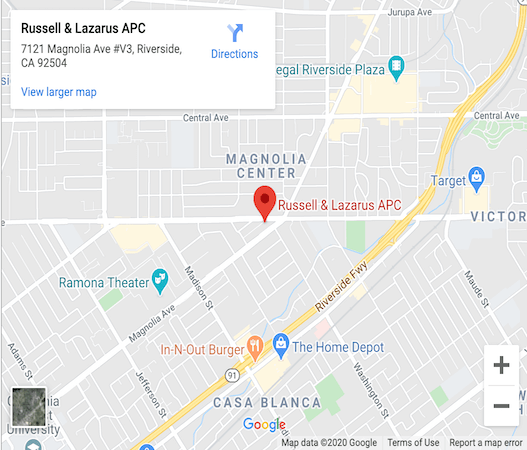
Phone: (951) 485-4000
Toll-Free: (800) 268-9228
Grandville Executive Suites
7121 Magnolia Ave., #V3
Riverside, CA 92504

